


2016 Clubsport Gen-F2

2016 Clubsport Tourer Gen-F2

2013 Clubsport Tourer Gen-F
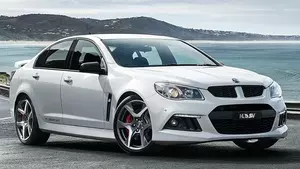
2013 Clubsport Gen-F
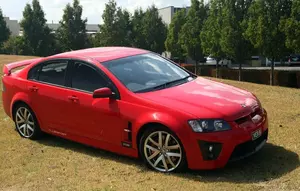
2009 Clubsport (VE II)

2009 Clubsport Tourer (VE II)
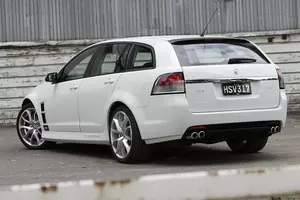
2008 Clubsport Tourer (VE)

2006 Clubsport (VE)

2004 Clubsport (VZ)
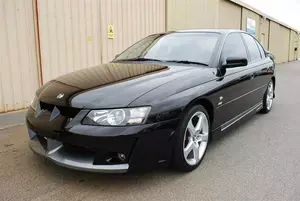
2003 Clubsport (VY II)
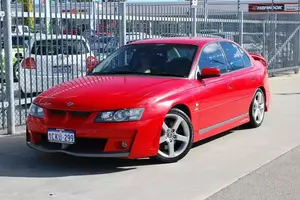
2002 Clubsport (VY)
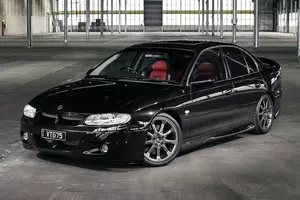
2000 Clubsport (VX)
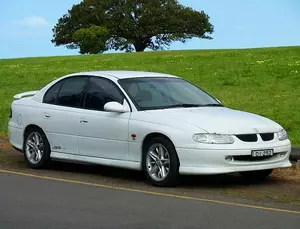
1999 Clubsport (VT)

1997 Clubsport (VT)

1993 Clubsport Wagon (VR)
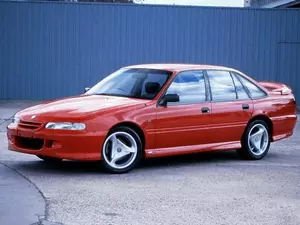
1993 Clubsport (VR, VS)
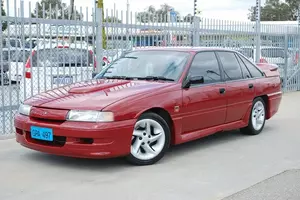
1990 Clubsport (VN, VP)

| Vehicle | Precise engine size | Difference from world average | Engine size to consumption ratio | Horsepower from 1 L | Engine size to 100 kg of weight |
|---|---|---|---|---|---|
| R8 LSA 6.2 V8 |
6.16 L (6162 cc) |
162.7% bigger | - | 87 hp from 1 L | - |
| Vehicle | R8 LSA 6.2 V8 |
|---|---|
| Precise engine size | 6.16 L (6162 cc) |
| Difference from world average | 162.7 bigger |
| Engine size to consumption ratio | - |
| Horsepower from 1 L | 87 hp from 1 L |
| Engine size to 100 kg of weight | - |

| Vehicle | Precise engine size | Difference from world average | Engine size to consumption ratio | Horsepower from 1 L | Engine size to 100 kg of weight |
|---|---|---|---|---|---|
| R8 LSA 6.2 V8 |
6.16 L (6162 cc) |
162.7% bigger | - | 87 hp from 1 L | - |
| Vehicle | R8 LSA 6.2 V8 |
|---|---|
| Precise engine size | 6.16 L (6162 cc) |
| Difference from world average | 162.7 bigger |
| Engine size to consumption ratio | - |
| Horsepower from 1 L | 87 hp from 1 L |
| Engine size to 100 kg of weight | - |

| Vehicle | Precise engine size | Difference from world average | Engine size to consumption ratio | Horsepower from 1 L | Engine size to 100 kg of weight |
|---|---|---|---|---|---|
| R8 6.2 V8 |
6.16 L (6162 cc) |
162.7% bigger | - | 72 hp from 1 L | 324 cc to 100 kg |
| R8 SV 6.2 V8 |
6.16 L (6162 cc) |
162.7% bigger | - | 75 hp from 1 L | 324 cc to 100 kg |
| Vehicle | R8 6.2 V8 |
|---|---|
| Precise engine size | 6.16 L (6162 cc) |
| Difference from world average | 162.7 bigger |
| Engine size to consumption ratio | - |
| Horsepower from 1 L | 72 hp from 1 L |
| Engine size to 100 kg of weight | 324 cc to 100 kg |
| Vehicle | R8 SV 6.2 V8 |
| Precise engine size | 6.16 L (6162 cc) |
| Difference from world average | 162.7 bigger |
| Engine size to consumption ratio | - |
| Horsepower from 1 L | 75 hp from 1 L |
| Engine size to 100 kg of weight | 324 cc to 100 kg |

| Vehicle | Precise engine size | Difference from world average | Engine size to consumption ratio | Horsepower from 1 L | Engine size to 100 kg of weight |
|---|---|---|---|---|---|
| R8 SV 6.2 V8 |
6.16 L (6162 cc) |
162.7% bigger | - | 75 hp from 1 L | 324 cc to 100 kg |
| R8 6.2 V8 |
6.16 L (6162 cc) |
162.7% bigger | 324 cc to 1 mpg | 72 hp from 1 L | - |
| 6.2 V8 |
6.16 L (6162 cc) |
162.7% bigger | 324 cc to 1 mpg | 70 hp from 1 L | - |
| Vehicle | R8 SV 6.2 V8 |
|---|---|
| Precise engine size | 6.16 L (6162 cc) |
| Difference from world average | 162.7 bigger |
| Engine size to consumption ratio | - |
| Horsepower from 1 L | 75 hp from 1 L |
| Engine size to 100 kg of weight | 324 cc to 100 kg |
| Vehicle | R8 6.2 V8 |
| Precise engine size | 6.16 L (6162 cc) |
| Difference from world average | 162.7 bigger |
| Engine size to consumption ratio | 324 cc to 1 mpg |
| Horsepower from 1 L | 72 hp from 1 L |
| Engine size to 100 kg of weight | - |
| Vehicle | 6.2 V8 |
| Precise engine size | 6.16 L (6162 cc) |
| Difference from world average | 162.7 bigger |
| Engine size to consumption ratio | 324 cc to 1 mpg |
| Horsepower from 1 L | 70 hp from 1 L |
| Engine size to 100 kg of weight | - |

| Vehicle | Precise engine size | Difference from world average | Engine size to consumption ratio | Horsepower from 1 L | Engine size to 100 kg of weight |
|---|---|---|---|---|---|
| R8 6.2 V8 |
6.16 L (6162 cc) |
162.7% bigger | 385 cc to 1 mpg | 70 hp from 1 L | 342 cc to 100 kg |
| Vehicle | R8 6.2 V8 |
|---|---|
| Precise engine size | 6.16 L (6162 cc) |
| Difference from world average | 162.7 bigger |
| Engine size to consumption ratio | 385 cc to 1 mpg |
| Horsepower from 1 L | 70 hp from 1 L |
| Engine size to 100 kg of weight | 342 cc to 100 kg |

| Vehicle | Precise engine size | Difference from world average | Engine size to consumption ratio | Horsepower from 1 L | Engine size to 100 kg of weight |
|---|---|---|---|---|---|
| R8 6.2 V8 |
6.16 L (6162 cc) |
162.7% bigger | 385 cc to 1 mpg | 70 hp from 1 L | 342 cc to 100 kg |
| Vehicle | R8 6.2 V8 |
|---|---|
| Precise engine size | 6.16 L (6162 cc) |
| Difference from world average | 162.7 bigger |
| Engine size to consumption ratio | 385 cc to 1 mpg |
| Horsepower from 1 L | 70 hp from 1 L |
| Engine size to 100 kg of weight | 342 cc to 100 kg |

| Vehicle | Precise engine size | Difference from world average | Engine size to consumption ratio | Horsepower from 1 L | Engine size to 100 kg of weight |
|---|---|---|---|---|---|
| R8 6.2 V8 |
6.16 L (6162 cc) |
162.7% bigger | 411 cc to 1 mpg | 70 hp from 1 L | 324 cc to 100 kg |
| Vehicle | R8 6.2 V8 |
|---|---|
| Precise engine size | 6.16 L (6162 cc) |
| Difference from world average | 162.7 bigger |
| Engine size to consumption ratio | 411 cc to 1 mpg |
| Horsepower from 1 L | 70 hp from 1 L |
| Engine size to 100 kg of weight | 324 cc to 100 kg |

| Vehicle | Precise engine size | Difference from world average | Engine size to consumption ratio | Horsepower from 1 L | Engine size to 100 kg of weight |
|---|---|---|---|---|---|
| R8 6.0 V8 |
5.97 L (5967 cc) |
154.3% bigger | - | 70 hp from 1 L | 332 cc to 100 kg |
| Vehicle | R8 6.0 V8 |
|---|---|
| Precise engine size | 5.97 L (5967 cc) |
| Difference from world average | 154.3 bigger |
| Engine size to consumption ratio | - |
| Horsepower from 1 L | 70 hp from 1 L |
| Engine size to 100 kg of weight | 332 cc to 100 kg |

| Vehicle | Precise engine size | Difference from world average | Engine size to consumption ratio | Horsepower from 1 L | Engine size to 100 kg of weight |
|---|---|---|---|---|---|
| R8 6.0 V8 |
5.97 L (5967 cc) |
154.3% bigger | - | 68 hp from 1 L | 351 cc to 100 kg |
| Vehicle | R8 6.0 V8 |
|---|---|
| Precise engine size | 5.97 L (5967 cc) |
| Difference from world average | 154.3 bigger |
| Engine size to consumption ratio | - |
| Horsepower from 1 L | 68 hp from 1 L |
| Engine size to 100 kg of weight | 351 cc to 100 kg |

| Vehicle | Precise engine size | Difference from world average | Engine size to consumption ratio | Horsepower from 1 L | Engine size to 100 kg of weight |
|---|---|---|---|---|---|
| R8 5.7 V8 |
5.67 L (5665 cc) |
141.5% bigger | - | 68 hp from 1 L | 333 cc to 100 kg |
| Vehicle | R8 5.7 V8 |
|---|---|
| Precise engine size | 5.67 L (5665 cc) |
| Difference from world average | 141.5 bigger |
| Engine size to consumption ratio | - |
| Horsepower from 1 L | 68 hp from 1 L |
| Engine size to 100 kg of weight | 333 cc to 100 kg |

| Vehicle | Precise engine size | Difference from world average | Engine size to consumption ratio | Horsepower from 1 L | Engine size to 100 kg of weight |
|---|---|---|---|---|---|
| R8 5.7 V8 |
5.67 L (5665 cc) |
141.5% bigger | - | 62 hp from 1 L | 333 cc to 100 kg |
| Vehicle | R8 5.7 V8 |
|---|---|
| Precise engine size | 5.67 L (5665 cc) |
| Difference from world average | 141.5 bigger |
| Engine size to consumption ratio | - |
| Horsepower from 1 L | 62 hp from 1 L |
| Engine size to 100 kg of weight | 333 cc to 100 kg |

| Vehicle | Precise engine size | Difference from world average | Engine size to consumption ratio | Horsepower from 1 L | Engine size to 100 kg of weight |
|---|---|---|---|---|---|
| R8 5.7 V8 |
5.67 L (5665 cc) |
141.5% bigger | - | 61 hp from 1 L | 333 cc to 100 kg |
| Vehicle | R8 5.7 V8 |
|---|---|
| Precise engine size | 5.67 L (5665 cc) |
| Difference from world average | 141.5 bigger |
| Engine size to consumption ratio | - |
| Horsepower from 1 L | 61 hp from 1 L |
| Engine size to 100 kg of weight | 333 cc to 100 kg |

| Vehicle | Precise engine size | Difference from world average | Engine size to consumption ratio | Horsepower from 1 L | Engine size to 100 kg of weight |
|---|---|---|---|---|---|
| R8 5.7 V8 |
5.67 L (5665 cc) |
141.5% bigger | - | 60 hp from 1 L | 333 cc to 100 kg |
| Vehicle | R8 5.7 V8 |
|---|---|
| Precise engine size | 5.67 L (5665 cc) |
| Difference from world average | 141.5 bigger |
| Engine size to consumption ratio | - |
| Horsepower from 1 L | 60 hp from 1 L |
| Engine size to 100 kg of weight | 333 cc to 100 kg |

| Vehicle | Precise engine size | Difference from world average | Engine size to consumption ratio | Horsepower from 1 L | Engine size to 100 kg of weight |
|---|---|---|---|---|---|
| 5.0 V8 |
4.99 L (4987 cc) |
112.6% bigger | - | 53 hp from 1 L | 293 cc to 100 kg |
| Vehicle | 5.0 V8 |
|---|---|
| Precise engine size | 4.99 L (4987 cc) |
| Difference from world average | 112.6 bigger |
| Engine size to consumption ratio | - |
| Horsepower from 1 L | 53 hp from 1 L |
| Engine size to 100 kg of weight | 293 cc to 100 kg |

| Vehicle | Precise engine size | Difference from world average | Engine size to consumption ratio | Horsepower from 1 L | Engine size to 100 kg of weight |
|---|---|---|---|---|---|
| 185i V8 |
4.99 L (4987 cc) |
112.6% bigger | - | 51 hp from 1 L | 312 cc to 100 kg |
| Vehicle | 185i V8 |
|---|---|
| Precise engine size | 4.99 L (4987 cc) |
| Difference from world average | 112.6 bigger |
| Engine size to consumption ratio | - |
| Horsepower from 1 L | 51 hp from 1 L |
| Engine size to 100 kg of weight | 312 cc to 100 kg |

| Vehicle | Precise engine size | Difference from world average | Engine size to consumption ratio | Horsepower from 1 L | Engine size to 100 kg of weight |
|---|---|---|---|---|---|
| 185i V8 |
4.99 L (4987 cc) |
112.6% bigger | - | 51 hp from 1 L | 312 cc to 100 kg |
| Vehicle | 185i V8 |
|---|---|
| Precise engine size | 4.99 L (4987 cc) |
| Difference from world average | 112.6 bigger |
| Engine size to consumption ratio | - |
| Horsepower from 1 L | 51 hp from 1 L |
| Engine size to 100 kg of weight | 312 cc to 100 kg |

| Vehicle | Precise engine size | Difference from world average | Engine size to consumption ratio | Horsepower from 1 L | Engine size to 100 kg of weight |
|---|---|---|---|---|---|
| 5.0 V8 |
4.99 L (4987 cc) |
112.6% bigger | - | 49 hp from 1 L | 332 cc to 100 kg |
| 5000i |
4.99 L (4987 cc) |
112.6% bigger | - | 55 hp from 1 L | 332 cc to 100 kg |
| Vehicle | 5.0 V8 |
|---|---|
| Precise engine size | 4.99 L (4987 cc) |
| Difference from world average | 112.6 bigger |
| Engine size to consumption ratio | - |
| Horsepower from 1 L | 49 hp from 1 L |
| Engine size to 100 kg of weight | 332 cc to 100 kg |
| Vehicle | 5000i |
| Precise engine size | 4.99 L (4987 cc) |
| Difference from world average | 112.6 bigger |
| Engine size to consumption ratio | - |
| Horsepower from 1 L | 55 hp from 1 L |
| Engine size to 100 kg of weight | 332 cc to 100 kg |